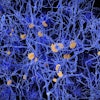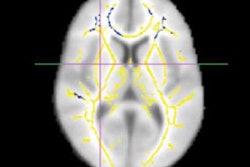MRI has a vital role to play in the diagnosis and evaluation of mental illnesses such as major depressive disorder (MDD), according to a study published online July 26 in Current Pharmaceutical Design.
Two Chinese researchers summarized recent findings related to MRI's role in determining the causes of MDD and the potential of biomarkers that could help in early diagnosis and the evaluation of treatment outcomes for MDD.
They cited the ability of resting-state functional MRI (fMRI) to accurately assess an individual's natural mental state and offer insights into the psychological basis of disease. In addition, diffusion-tensor MRI (DTI-MRI) and MR spectroscopy can be helpful in gathering information on the molecular pathophysiology of different neuropsychiatric disorders, including MDD.
Multicenter trials and longitudinal dynamic tracking surveys must still be performed to determine the exact associations between abnormal changes and clinical symptoms, said study co-author Dr. Junfeng Li from Heping Hospital of Changzhi Medical College.


.fFmgij6Hin.png?auto=compress%2Cformat&fit=crop&h=100&q=70&w=100)





.fFmgij6Hin.png?auto=compress%2Cformat&fit=crop&h=167&q=70&w=250)











